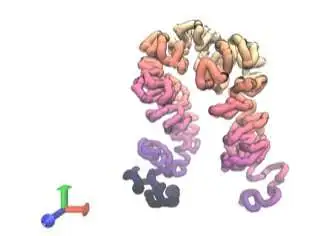Researchers developed synthetic intelligence (AI) packages that accurately anticipated the function of the regulatory elements and three-dimensional (3D) structure based merely on the raw sequence of DNA.

Dr. Zhou and colleagues at Princeton University and the Flatiron Institute created the Sei deep learning model to better understand these regulatory components. Sei precisely organizes these noncoding DNA snippets into 40 “sequence courses” or jobs, such as an enhancer for stem cell or brain cell gene exercise. These 40 sequence courses cover more than 97 percent of the human genome and were created using nearly 22,000 data units from earlier studies into genome regulation. Additionally, Sei may evaluate each sequence based on the actions it is anticipated to take in each of the 40 sequence courses and predict how mutations will impact those actions.
In May, Dr. Zhou announced the development of a unique program called Orca that forecasts the 3D structure of DNA in chromosomes based largely on its sequence. Dr. Zhou trained the mannequin to create connections and assessed the mannequin’s ability to predict assembly at various size scales using current knowledge units of
DNA sequences and structural knowledge were gained from earlier studies that disclosed the molecule’s folds, twists, and turns. The results showed that Orca accurately predicted DNA structures of all sizes based on their sequences, including sequences bearing mutations linked to a variety of medical conditions like a kind of leukemia and limb abnormalities. Additionally, Orca allowed the researchers to develop new theories on how DNA sequences work.
“Taken together, these two programs provide a more complete picture of how changes in DNA sequence, even in noncoding regions, can have dramatic effects on its spatial organization and function,” said Dr. Zhou, a member of the Harold C. Simmons Comprehensive Cancer Center, a Lupe Murchison Foundation Scholar in Medical Research, and a Cancer Prevention and Research Institute of Texas (CPRIT) Scholar.
Dr. Zhou stated that he and his colleagues intend to use Sei and Orca, which are both publicly available on web servers and as open-source code, to further investigate the role of genetic mutations in causing the molecular and physical manifestations of illnesses. This investigation may ultimately lead to new treatments for these conditions.
The published research papers for Role Of DNA In Regulation and 3D Structure of DNA








